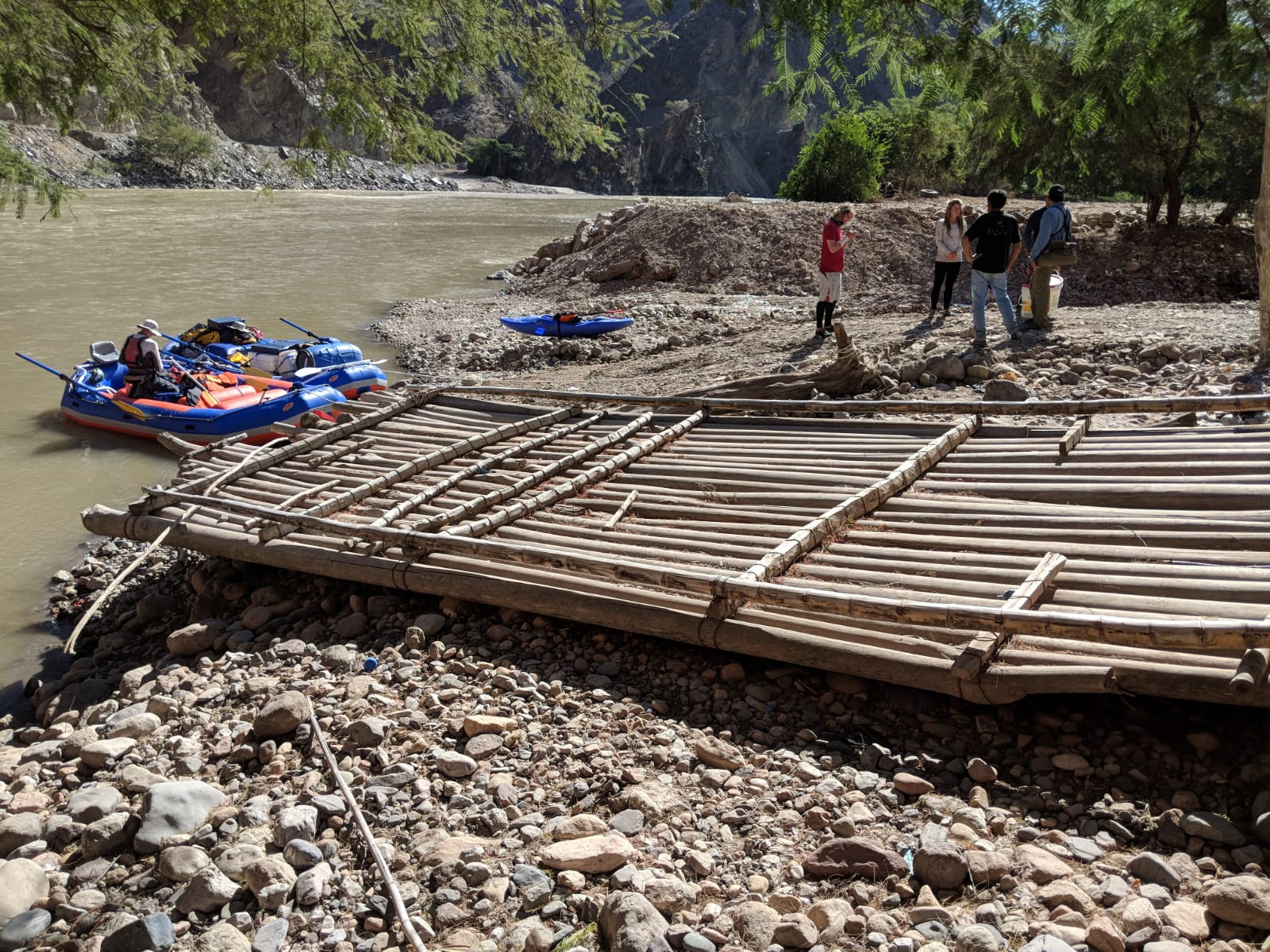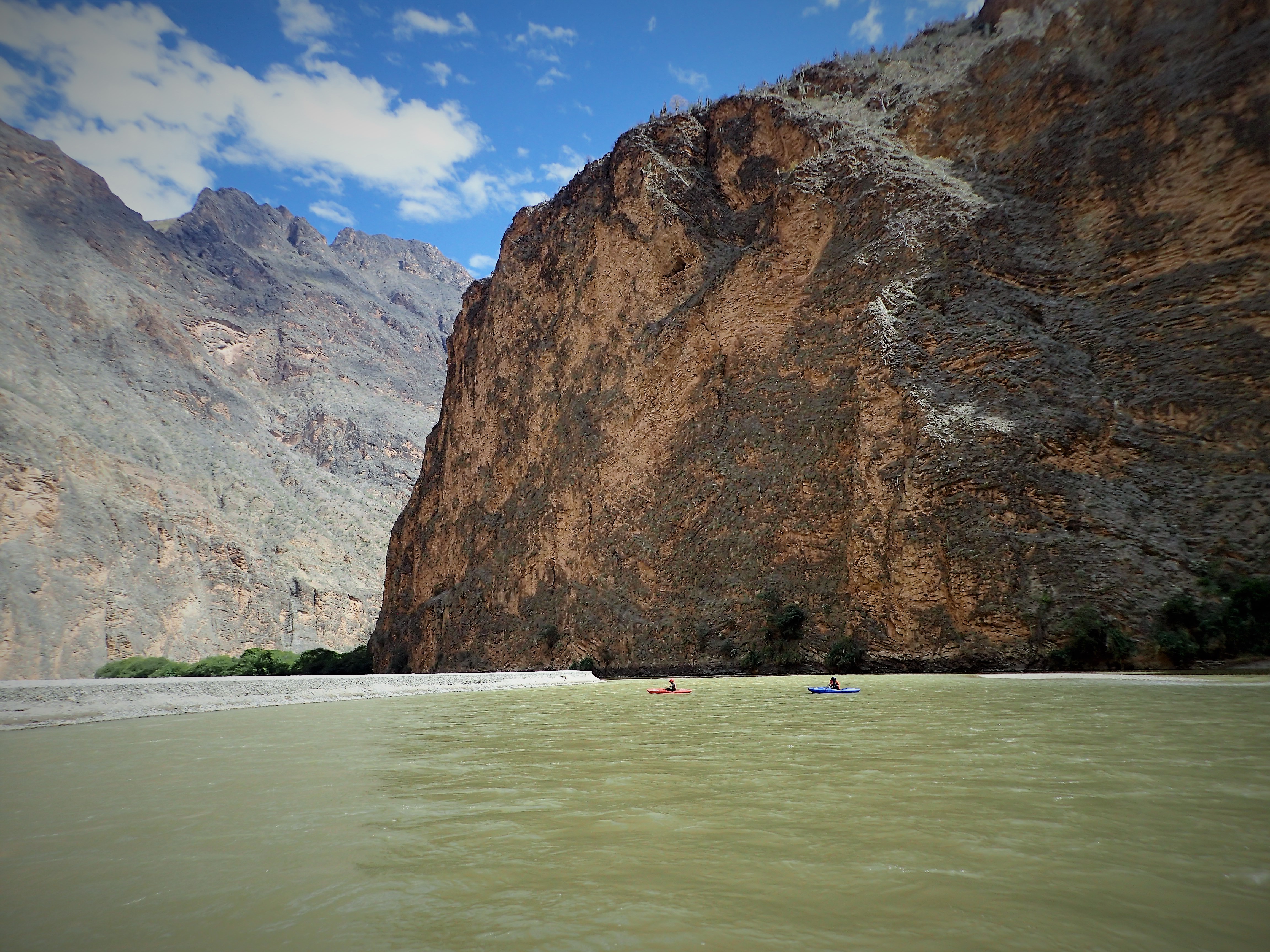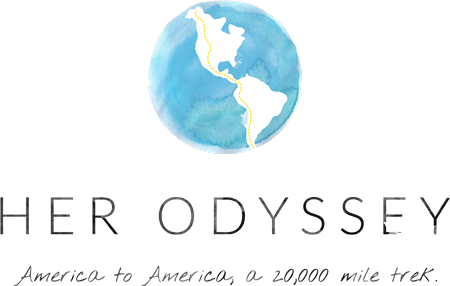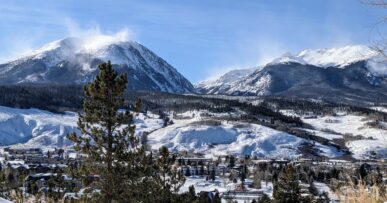Haz clic aquí para leer en español
Written by Fidgit
It was one of those towns which instantly underwhelms:
The plaza was an uneven dirt square. Funding was coming from somewhere to build a cement sports plot. I have become skeptical of projects like this in damming territory, having heard enough stories and seen enough examples of the ways the international corporations buy locals’ votes.
I could not believe the Peruvian man who told us the damming company had come around with a blank piece of paper, collecting signatures which they then presented to the government as approval for the project.
“That’s not legal!” I exclaimed to Luigi once I confirmed I had heard the story correctly.
“This is what they do,” he shrugged.
Considering the lack of access to resources, information, and limited education in these regions, the playing field hardly seems even, cement sports court or not. Electricity was a recent arrival. The center piece of one of the homes was a chest freezer which had been packed in by mules. The lady of the house made us all mugs of delicious hot chocolate by hand mixing bits of chocolate brick from their cocoa plants with hot water.
“Or you can make it in a blender,” she explained when I asked for the recipe, “but the original way is to do it with a wooden spoon in a clay jar.”

Several of us had wandered up from the boats on various missions. Ben loped toward the schoolhouse and the professor he knew there to talk about sharing Confluir, the film we had brought to share with people about the effect the proposed dams would have. Later conversations would reveal the dam companies had already been hard at work making relationships and winning over support in this community.
Cloudbuster and I had meandered up to see what there was to see and check out if there was a shop. It was a typical small village in that a shop had to be there somewhere, it was just a matter of engendering enough trust to be told whose house it was in.
So we wandered the dirt paths between the houses. The only people out were an elderly couple sitting on the floor of their porch with a tarp covered in tiny beans and a couple metal bowls. A large stretcher made of long poles and hide was leaned against the wall, “To take injured people to the road,” the woman explained.
We asked about a shop, “it is over there but they are out at the chakras,” the tiny crone mumbled amidst a flurry of other Spanish words I did not follow. I asked Cloudbuster if he was up for burning time and sorting beans.
“Sure,” he shrugged.
I was excited and nervous.
This is an aspect of my life, of this journey, which I don’t usually get to share.
Having occupied a space between cultures since I was 4 years old, I’m pretty good at it, but, while most words can be translated, sometimes lines of thinking and social rules of etiquette are difficult to explain. Being a dialectical thinker can be uncomfortable, especially when you have a short time to try to get this person to understand why that person does something differently.
Suffice it to say, life and logic is not as linear in South America as it is to your average U.S. citizen. People in the campo do a lot of sitting around, and if you want to understand anything about their lives, you have to join them in that. Little did I know what a vivid example we were sitting down to.
We asked why and how they were sorting the beans, “they are old and worms got into them, so we are picking out the bad ones and keeping the good ones.” She kept running her hand across them, seemingly picking ones up at random. I inspected the bowls and found one full of beans with holes burrowed in them or shriveled and discolored.
I showed Cloudbuster what I had inferred was the process and we began methodically to sort handfuls, placing the bad beans into this bowl and the good ones into that one.
“But you don’t work, first, you eat some mangoes.” She reached into the darkened doorway and produced a bowlful of the ubiquitous regional fruit.
I began sucking one off the peel, throwing bits to the chicken tied up nearby as we chatted. Cloudbuster had already set to sorting the beans and tiny bean sorting is not a job for sticky hands. He exemplified the cherished U.S. perspective: work hard now, earn your treat later.
“Why isn’t he accepting a mango? They are ripe and good. Does he not like my mangoes?” she demanded.
“No no, we are from North America, and in our culture it is respectful to work first before accepting a snack. Your mangoes are very good, he looks forward to eating one.” I explained to her in Spanish.
I uttered a quick explanation to him in English and he tactfully switched tasks, immediately gaining the interest of all the surrounding animals. The chicken wanted the peels, the pig behind the wood door began knocking with its snout, the kitten stretched and made its presence known.
After an appropriate amount of mango eating and complimenting, we returned to sorting. It was thus with some dismay that we watched her pour the large bowl of “approved beans” back out onto the tarp with the “unverified beans” and resume randomly push them around as she talked.
“I am ancient,” she declared.
“How old are you?” I inquired.
She turned to her partner, “how old am I?”
“26,” he replied, not looking up.
“I’m 26,” she informed us.
I sorted through 26 beans before raising my head lest I have to justify my smirk.
A neighbor walked past, greeting the couple cheerily, “how are you?”
“Still here,” she ran through a list of their various maladies and while he slowed his pace, he did not stop.
“Do you have children?” I eventually asked.
“Yes but only a few. One is in the city, one is working our chakra, and the river took one.”
This was something I heard several times along the float.
The river takes people.
The same way mountains fall down.
Natural disasters are phrased in the same terms as if a child had fallen and scraped their knee, or if a neighbor had borrowed a cup of flower.
“Se cayo” (It/he/she fell down)
“Se le llevo” (It took it/him)

“I am so old,” she lamented, “and I just won’t die. God has disintegrated rocks faster than he will take me!” She seemed genuinely offended.
“You must be a keeper of great wisdom.” I offered, searching for the positive.
“Yes, when I was young I was a healer. I tied (helped birth) over 80 babies. I have brought much life into this world but I cannot seem to leave it.”
We continued sorting beans and chatted for a while longer until I began to wonder about the rest of our crew. Gently I excused us to go look for our friends.
“Well, next time you come past, be sure to stop by. I’ll probably still be here!”
So you see, you can’t build dams here because she can neither die nor move.
[youtube https://www.youtube.com/watch?v=L0rjl-5qCLo&w=560&h=315]
Clasificando frijoles: pasando tiempo en el Marañón
Traduccion por Henry Tovar
Escrito por Fidgit
Fue una de esas ciudades que instantáneamente decepciona:
La plaza era un cuadrado de tierra desigual. La financiación provenía de algún lugar para construir una parcela de deportes de cemento. Me he vuelto escéptica de proyectos como este en un territorio represado, habiendo escuchado suficientes historias y visto suficientes ejemplos de cómo las corporaciones internacionales compran votos locales.
No podía creer que el peruano que nos contó que la compañía de represas había llegado con una hoja de papel en blanco, recogiera firmas que luego presentaron al gobierno como aprobación para el proyecto.
“¡Eso no es legal!” Exclamé a Luigi una vez que confirmé que había escuchado la historia correctamente.
“Esto es lo que hacen”, se encogió de hombros.
Teniendo en cuenta la falta de acceso a los recursos, la información y la educación limitada en estas regiones, el campo de juego difícilmente parece uniforme, tribunal de deportes de cemento o no. La electricidad era una llegada reciente. La pieza central de una de las casas era un arcón congelador que había sido empacado por mulas. La señora de la casa nos hizo tazas de delicioso chocolate caliente mezclando a mano pedazos de chocolate de sus plantas de cacao con agua caliente.
“O puede hacerlo en una licuadora”, explicó cuando le pedí la receta, “pero la forma original es hacerlo con una cuchara de madera en una jarra de arcilla”.

Varios de nosotros habíamos vagado desde los botes en varias misiones. Ben corrió hacia la escuela y el profesor que conocía allí para hablar sobre el intercambio de Confluir, la película que habíamos traído para compartir con la gente sobre el efecto que tendrían las represas propuestas. Las conversaciones posteriores revelarían que las compañías de represas ya habían trabajado arduamente para establecer relaciones y ganarse el apoyo de esta comunidad.
Cloudbuster y yo habíamos caminado para ver qué había para ver y ver si había una tienda. Era un pequeño pueblo típico en el que una tienda tenía que estar allí en alguna parte, era solo cuestión de engendrar la confianza suficiente para que le dijeran en qué casa se encontraba.
Así que vagamos por los caminos de tierra entre las casas. Las únicas personas que salieron eran una pareja de ancianos sentados en el suelo de su porche con una lona cubierta de frijoles diminutos y un par de cuencos metálicos. Una gran camilla hecha de largos palos y cuero estaba apoyada contra la pared, “Llevar a las personas heridas al camino”, explicó la mujer.
Preguntamos por una tienda, “está por allí pero están en los chakras”, murmuró la pequeña bruja en medio de una ráfaga de otras palabras en español que no seguí. Le pregunté a Cloudbuster si estaba listo para grabar y ordenar frijoles.
“Claro”, se encogió de hombros.
Estaba emocionado y nervioso.
Este es un aspecto de mi vida, de este viaje, que normalmente no comparto.
Habiendo ocupado un espacio entre culturas desde que tenía 4 años, soy bastante bueno en eso, pero, aunque la mayoría de las palabras se pueden traducir, a veces las líneas de pensamiento y las reglas sociales de etiqueta son difíciles de explicar. Ser un pensador dialéctico puede ser incómodo, especialmente cuando tienes poco tiempo para intentar que esta persona entienda por qué esa persona hace algo diferente.
Baste decir que la vida y la lógica no son tan lineales en Sudamérica como lo son para un ciudadano estadounidense promedio. La gente en el campo se sienta mucho, y si quieres entender algo sobre sus vidas, debes unirte a ellos en eso. Poco sabía de qué ejemplo tan vivo estábamos sentados.
Les preguntamos por qué y cómo estaban clasificando los frijoles, “son viejos y los gusanos se metieron en ellos, así que estamos escogiendo los malos y conservando los buenos”. Ella siguió pasando su mano sobre ellos, aparentemente recogiendo unos al azar. Inspeccione los cuencos y encontré uno lleno de frijoles con agujeros enterrados en ellos o marchitos y descoloridos.
Le mostré a Cloudbuster lo que había deducido que era el proceso y comenzamos metódicamente a ordenar puñados, colocando los granos malos en este tazón y los buenos en ese.
“Pero no trabajas, primero, comes algunos mangos”. Extendió la mano por la puerta oscura y sacó un recipiente lleno de la omnipresente fruta regional.
Comencé a chupar una de las cáscaras, lanzando pedazos al pollo atado cerca mientras charlabamos. Cloudbuster ya había empezado a ordenar los frijoles y la selección de frijoles pequeños no es un trabajo para las manos pegajosas. Él ejemplifica la apreciada perspectiva de los EE. UU .: trabaje duro ahora, gane su premio más tarde.
“¿Por qué no está aceptando un mango? Están maduros y buenos. ¿No le gustan mis mangos?” exigió.
“No, no, somos de América del Norte, y en nuestra cultura es respetuoso trabajar primero antes de aceptar un bocadillo. Sus mangos son muy buenos, espera comer uno”. Le expliqué en español.
Le pronuncié una rápida explicación en inglés y él cambió tácticamente las tareas, ganando inmediatamente el interés de todos los animales de los alrededores. El pollo quería las cáscaras, el cerdo detrás de la puerta de madera comenzó a golpear con su hocico, el gatito se estiró e hizo su presencia.
Después de una cantidad adecuada de mango y cumplidos, volvimos a clasificar. Fue entonces, con algo de consternación, cuando la vimos arrojar el tazón grande de “judías aprobadas” de vuelta a la lona con los “frijoles no verificados” y reanudarlos al azar mientras hablaba.
“Soy antiguo”, declaró.
“¿Cuantos años tienes?” Yo consulté.
Se volvió hacia su compañero, “¿cuántos años tengo?”
“26”, respondió, sin levantar la vista.
“Tengo 26 años”, nos informó.
Ordene 26 judías antes de levantar la cabeza, no sea que tenga que justificar mi sonrisa.
Un vecino pasó caminando y saludó a la pareja alegremente, “¿cómo estás?”
“Todavía aquí”, repasó una lista de sus diversas enfermedades y, aunque redujo el ritmo, no se detuvo.
“¿Tiene hijos?” Finalmente pregunté.
“Sí, pero solo unos pocos. Uno está en la ciudad, uno está trabajando nuestro chakra y el río tomó uno”.
Esto fue algo que escuché varias veces a lo largo del flotador.
El río lleva personas
De la misma manera en que las montañas caen.
Los desastres naturales se expresan en los mismos términos que si un niño se hubiera caído y se hubiera rascado la rodilla, o si un vecino hubiera pedido prestado una taza de flor.
“Se cayo”
“Se le llevo”

“Soy tan viejo”, se lamentó, “y no voy a morir. Dios ha desintegrado las rocas más rápido de lo que él me llevará”. Ella parecía genuinamente ofendida.
“Debes ser un guardián de gran sabiduría”. Ofrecí, buscando lo positivo.
“Sí, cuando era joven, era un sanador. Ataron (ayudó a dar a luz) a más de 80 bebés. He traído mucha vida a este mundo, pero parece que no puedo dejarlo”.
Continuamos clasificando frijoles y charlando un rato más hasta que comencé a preguntarme sobre el resto de nuestro equipo. Suavemente, nos excusamos para ir a buscar a nuestros amigos.
“Bueno, la próxima vez que vengas, asegúrate de pasar por aquí. ¡Probablemente aún esté aquí!”
Nos separamos con besos.
[youtube https://www.youtube.com/watch?v=L0rjl-5qCLo&w=560&h=315]






Comments (6)
Heartwarming, “Everydayish” while also expressing the sweetness of being in “here, now.” Thanks for the warm story of humanity just being.
Thank you for reading, Trudy!
You’re wonderful. Thank you.
Thank you for reading and being along for the adventure!
Really great entry. I think you two are exceptional and can’t imaging how you could reintegrate into the world we now live in here in the great US of A.
I figure it’ll feel like after a good amount of time in the woods when you then have to cross a highway but can’t quite calculate the speed of oncoming cars…